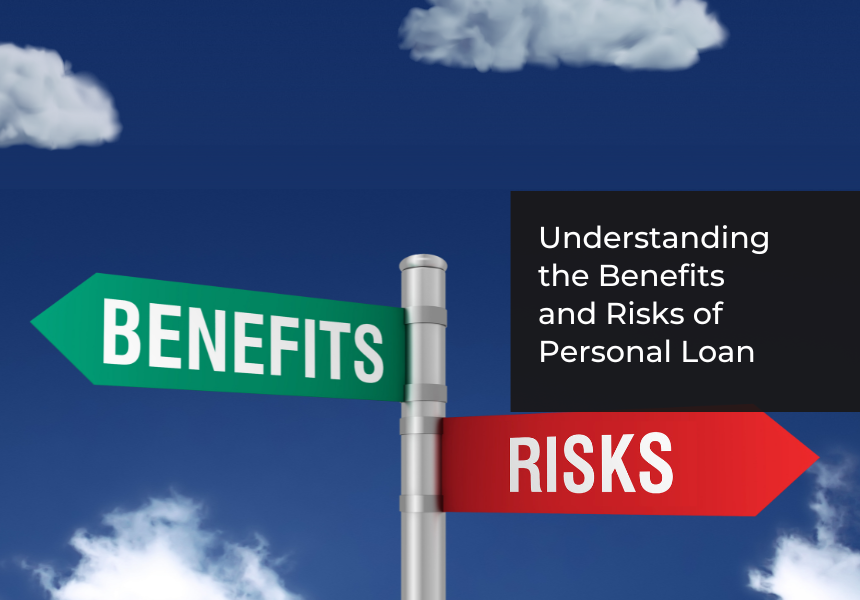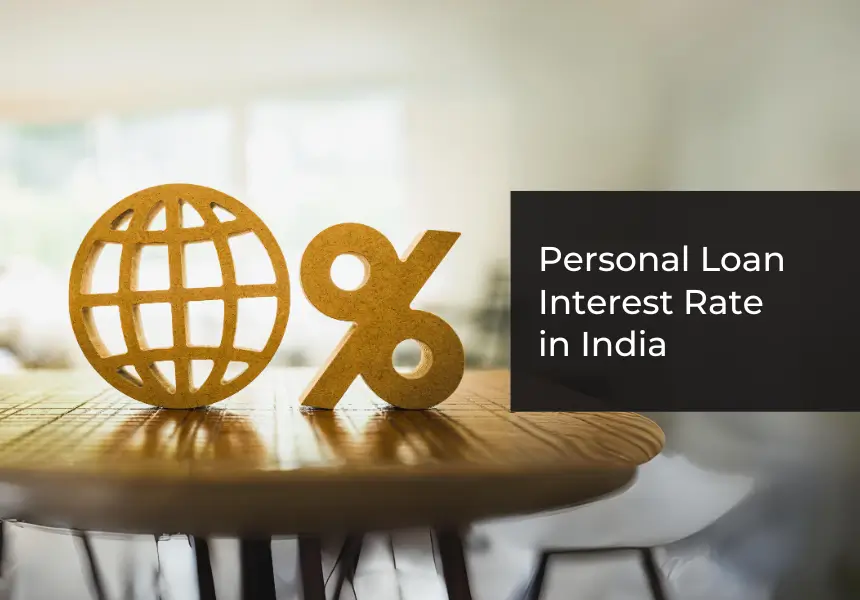
In times of emergencies, a personal loan is a hassle-free way of financing. You can use this open-ended loan for any purpose like medical expenses, wedding expenses, buying an electric vehicle, etc. Personal loans are unsecured loans, which means that you do not need to put up any collateral to get one. But just like other credit options, personal loans come with certain risks. It’s important that you understand the advantages and risks of applying for a loan before you do so. Here we have explained both benefits and risks of personal loans in detail.
Benefits of Personal Loan
A personal loan is a great boon for times when you need funds in an emergency. Below are some of the benefits of personal loans:
- Hassle-Free Documentation – When applying for a personal loan, there is minimal documentation. The process is very simple and hassle-free. A personal loan offers numerous advantages, but it also carries inherent risks. Understanding these risks is crucial in order to make an informed decision and carefully evaluate the available loan options before making a selection. Having a clear understanding of the possible drawbacks associated with personal loans enables individuals to make informed choices that are in line with their specific financial requirements.
- Quick Disbursal – You don’t have to worry about loan amount disbursal. If you fulfil all the eligibility criteria and your application is approved. The loan amount will be disbursed within 24-36 hours.
- Customisable Loan Tenure – You can choose the loan tenure that works best for you, helping you optimise your expenditure. At LoanTap, you can choose a loan tenure from 6 months for faster loan repayment, upto 60 months if you prefer a lower EMI outflow each month.
Risks Involved With Personal Loan
A personal loan offers various advantages, although it also entails a certain level of risk. It is crucial to be informed about these risks in order to make a well-informed and cautious decision when selecting loan options.
- It can hurt your credit score – Although the personal loan has flexible repayment terms, it can hurt your credit report if you miss a payment, or don’t pay off your loan within the stipulated time. Typically personal loans have a 30-day grace period. Once the grace period has passed, your credit score can drop by 180 points.
- Hidden fees and penalties: Be very careful where you take personal loans from. Loans from unscrupulous lenders may include hidden fees and penalties that borrowers may overlook. These can include origination fees, prepayment penalties, late payment fees, and others. It’s crucial to carefully read the terms and conditions of the loan agreement to understand all the fees and charges associated with the loan. LoanTap assures complete transparency of repayment terms when providing personal loans.
- Overborrowing and debt cycle: Personal loans provide a lump sum of money that borrowers can use for various purposes. However, if borrowers are not careful with their spending habits, they may end up borrowing more than necessary and falling into a cycle of debt. This cycle can be challenging to break, leading to financial instability and stress.
- Impact on future borrowing capacity: Personal loans may have an impact on your future capacity to get credit. Lenders consider your debt-to-income ratio when evaluating loan applications. If you have a significant personal loan balance, it may hinder your chances of getting approved for other credit, such as a mortgage or car loan, as it may signal a higher risk of defaulting on additional debt.
Conclusion
Understanding the benefits and risks of personal loans is crucial before deciding to take one. While personal loans can provide quick access to funds, the high-interest rates and potential hidden fees pose financial risks. Additionally, borrowers should be aware of the impact on their credit score, the potential for overborrowing and debt cycles, and the requirement of collateral in certain cases. However, if used responsibly and with careful consideration, personal loans can be a helpful tool for achieving short-term financial goals. Be sure to assess your individual financial circumstances and make an informed decision that aligns with long-term financial well-being.








